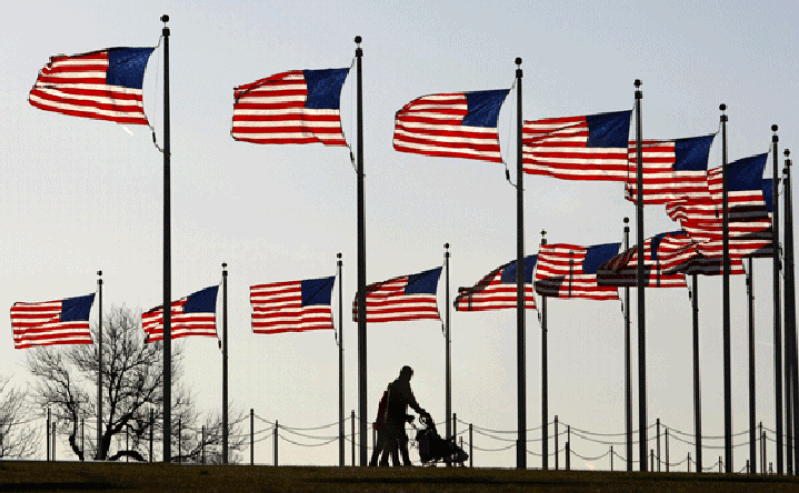
A global survey of 40 countries has found that when it came to economic issues and general status, many people around the world hold a largely favorable opinion of the United States.
According to a report from BBC News, the U.S. is largely seen in a positive light. The survey, conducted by Richard Wike, Bruce Stokes and Jacob Poushter of Pew Research Center, found that 69 percent of people saying that they viewed the U.S. in favorable terms, up from 65 percent back in 2013 and 2014.
"President Obama also remains popular in most countries, and his ratings have improved over the last year in 14 nations," Wike, Stokes and Poushter wrote.
According to Pew, the biggest swing in support for President Obama overseas came from India; about 74 percent of Indians expressed confidence in the president compared to 48 percent a year ago. However, confidence in Obama in Israel has slipped dramatically from 71 percent to 49 percent.
Pew also pointed out that when it came to the issue of torture or "harsh interrogation methods" used in the aftermath of the 9/11 attacks, Americans and the rest of the world have divided opinions.
"A median of 50 percent across 40 nations surveyed say they oppose these practices, which were detailed in a widely publicized U.S. Senate report in December 2014," Wike, Stokes and Poushter wrote. "Only 35 percent believe they were justified. Americans disagree - nearly six-in-ten (58 percent) say they were justified."
However, the BBC pointed out that there were some outliers in international opinion about the use of such interrogation techniques.
"Italians were largely split on the issue, and people in Poland tended to believe that interrogation techniques were justified," the BBC wrote. "In the Middle East and Asia, the techniques were largely seen in a negative light - except in Israel, India and the Philippines."
Pew drew comparisons between the global image of China and the U.S. It found that "both nations tend to get better ratings among young people."
"In 18 nations, people under age 30 are more likely than those 50 and older to express a positive opinion of China," Wike, Stokes and Poushter wrote. "This is especially true in the U.S., where 55 percent of 18-29 year-olds offer a favorable view, compared with 27 percent of people 50 and over. Meanwhile, 59 percent of Chinese under age 30 see the U.S. favorably, compared with only 29 percent of those ages 50+."
When it came to individual rights, Pew found that there was a stark difference between the U.S. and China.
"A global median of just 34 percent believe the Chinese government respects the personal freedoms of its people," Wike, Stokes and Poushter wrote. "Large majorities (about three-quarters or more) in the U.S., Canada, Japan, Australia, South Korea and throughout the EU say China does not respect these rights."
When it came to U.S. economic power, Pew found that many people, particularly in Europe, thought the U.S. had "the top economy" in comparison to China. However, the sentiment was different in regards to the future.
"When asked about the future, most publics think China has eclipsed or will eventually eclipse the U.S. as the dominant superpower," Wike, Stokes and Poushter wrote.
Pew stated that its survey was conducted last month in 40 nations with a total of 45,435 respondents.







